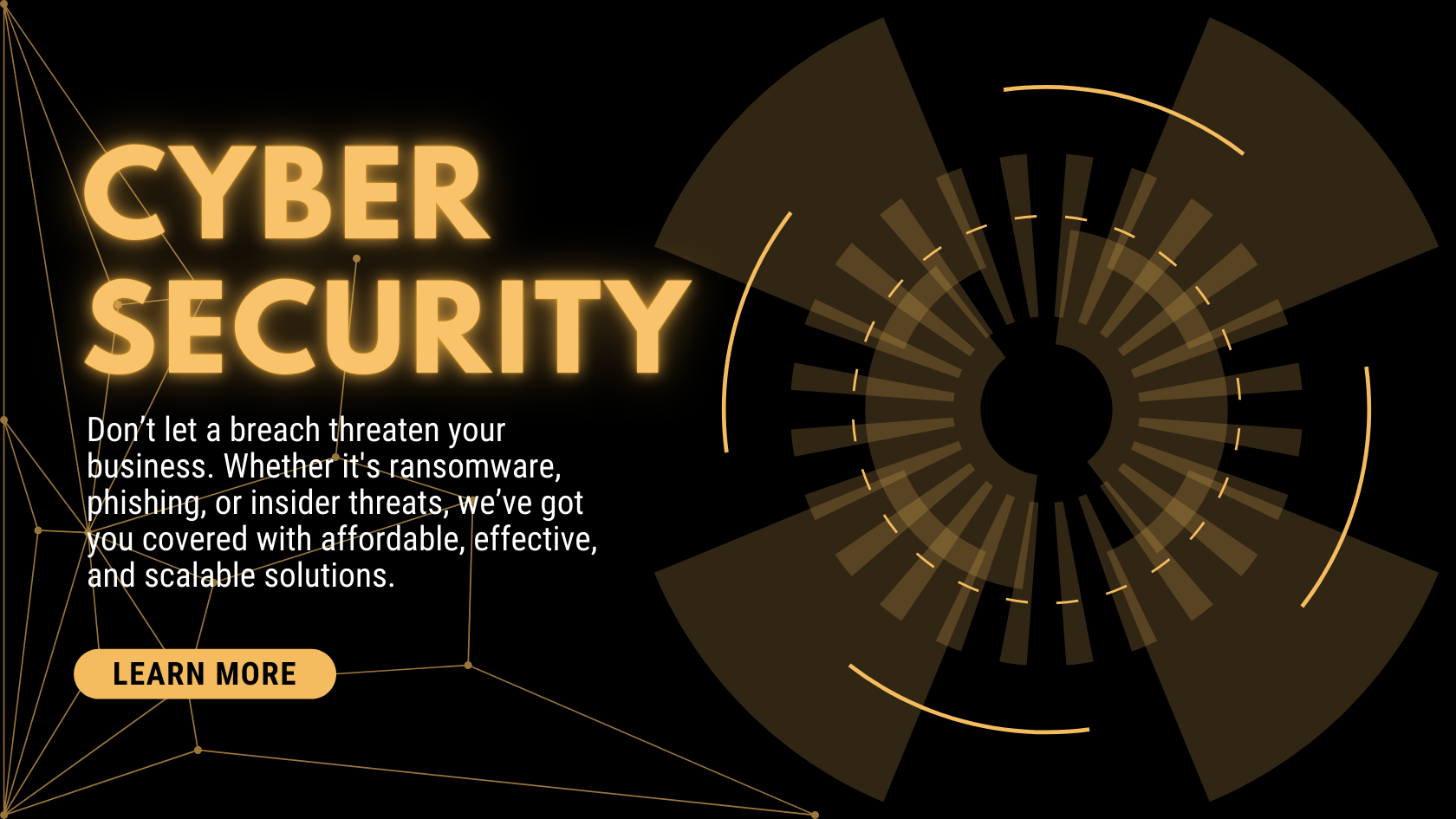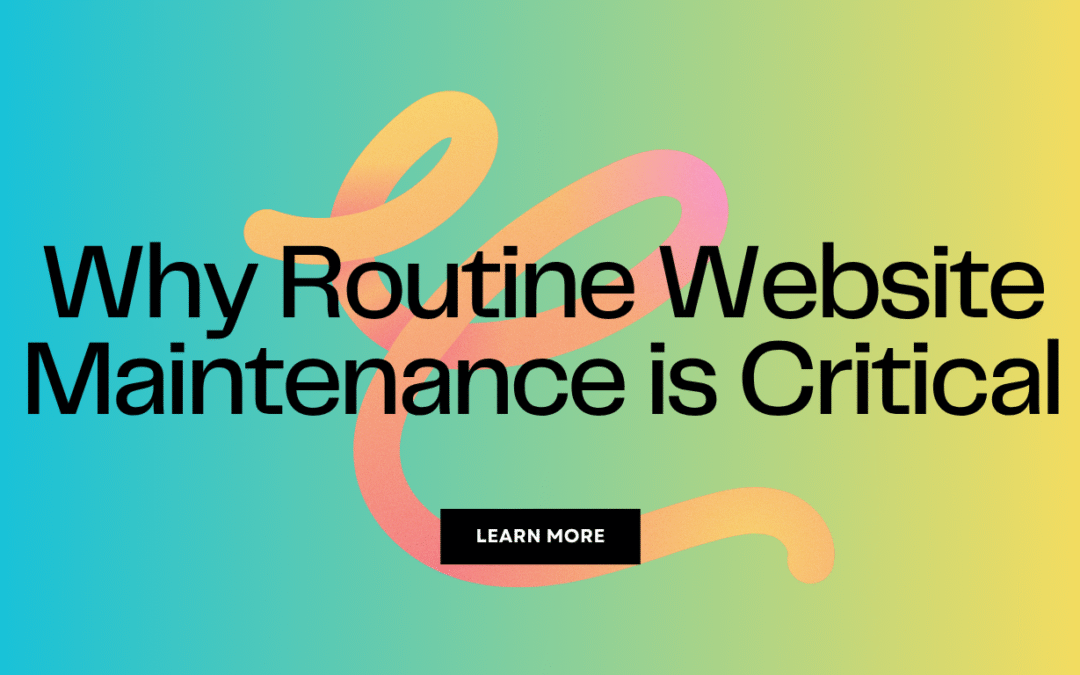Table of Contents
Cybersecurity for SMBs: Why It’s Critical and How to Protect Your Business
Small and medium-sized businesses (SMBs) face a growing number of cybersecurity threats. While many SMBs believe they are too small to be targeted, the reality is quite different. Cybercriminals often see SMBs as easy targets due to limited resources and less sophisticated security measures. This misconception can result in devastating data breaches, financial losses, and damage to brand reputation.
Why Cybersecurity Matters for SMBs
1. Rising Cyber Threats: Cyberattacks on SMBs have increased dramatically in recent years. Hackers exploit vulnerabilities such as outdated software, weak passwords, and untrained employees. Common threats include phishing scams, ransomware, and data breaches, all of which can severely disrupt operations.
2. Financial Impact: The cost of a cyberattack goes beyond immediate damage. In addition to ransom payments or recovering lost data, businesses can face downtime, loss of customer trust, legal penalties for data breaches, and regulatory fines.
3. Compliance Requirements: With the rise of regulations like GDPR, HIPAA, and CCPA, SMBs must ensure they are protecting customer data and following legal protocols. Non-compliance can lead to significant penalties and legal issues, even for small companies.
Common Cybersecurity Threats Faced by SMBs
1. Phishing Attacks: One of the most common types of cyberattacks, phishing scams trick employees into revealing sensitive information by posing as legitimate entities. Phishing emails often contain malicious links or attachments designed to steal passwords or infect systems with malware.
2. Ransomware: Ransomware attacks lock down a company’s data until a ransom is paid. These attacks can cripple operations and often result in significant data loss, even after the ransom is paid.
3. Insider Threats: While external attacks grab the headlines, insider threats—whether intentional or accidental—are a significant concern. Employees may unknowingly compromise data security by using unsecured devices or clicking on malicious links.
4. Weak Passwords: Many SMBs still rely on weak or default passwords, which are easy targets for hackers using brute force attacks. A lack of strong password policies can open the door to unauthorized access.
How SMBs Can Protect Themselves
1. Implement Robust Security Measures: SMBs must invest in essential cybersecurity tools like firewalls, antivirus software, and encryption. These basic protections provide a strong first line of defense against potential attacks.
2. Train Employees Regularly: Human error is a leading cause of cybersecurity incidents. Regular cybersecurity training helps employees recognize phishing scams, avoid suspicious links, and follow best practices for secure online behavior.
3. Use Multi-Factor Authentication (MFA): MFA adds an extra layer of protection by requiring multiple forms of verification before granting access to sensitive systems. This makes it much harder for cybercriminals to gain unauthorized access.
4. Partner with Cybersecurity Experts: For many SMBs, hiring a full-time IT security team may not be feasible. However, partnering with managed IT and cybersecurity providers can give businesses access to top-tier protection without the overhead costs. These experts offer services such as regular system monitoring, vulnerability assessments, and incident response.
5. Regularly Back Up Data: Maintaining regular data backups ensures that in the event of a cyberattack, critical business data can be restored quickly. Automated cloud-based backup solutions are an effective and affordable option for SMBs.
6. Keep Software Updated: Outdated software is a common entry point for cyberattacks. Ensuring that all systems, software, and plugins are regularly updated can help patch vulnerabilities and reduce the risk of attacks.
Solutions for SMBs: Strengthening Cybersecurity
To effectively safeguard against cyber threats, SMBs should implement a combination of genuine software, robust security measures, and reliable backup solutions. Here are some recommended strategies and products to enhance your cybersecurity posture:
1. Use Genuine Software:
- Ensure that all operating systems and office applications are genuine and up-to-date. Genuine software not only provides access to critical updates and support but also reduces the risk of vulnerabilities associated with pirated or outdated software.
2. Invest in Endpoint Protection Solutions:
- A robust antivirus and endpoint protection solution is essential for maintaining control over your security environment. Consider implementing:
- Seqrite EPS: An endpoint protection solution that offers comprehensive security against malware, ransomware, and other threats, along with advanced threat detection capabilities.
- Kaspersky EPS Cloud Plus: This cloud-based solution provides real-time protection against a variety of cyber threats and is ideal for SMBs looking for scalable and easy-to-manage security.
- Acronis Cyber Protect: A dual solution that combines backup and endpoint protection, Acronis ensures that your data is not only secure but also quickly recoverable in the event of an attack.
3. Implement Multi-Factor Authentication (MFA):
- Adding MFA to your access controls can significantly reduce the risk of unauthorized access. Solutions like Google Authenticator or Duo Security can be easily integrated into your systems.
4. Regular Security Assessments:
- Conduct periodic security assessments to identify vulnerabilities and address them promptly. Tools like Nessus or Qualys can help in scanning your network for potential weaknesses.
5. Employee Training and Awareness Programs:
- Regular training sessions on cybersecurity best practices are crucial. Platforms like KnowBe4 offer comprehensive training solutions tailored for SMBs, helping employees recognize and avoid potential threats.
6. Secure Your Network:
- Implement enterprise-managed wireless networking solutions like Cisco Meraki or Ubiquiti Unifi to ensure secure connectivity throughout your business premises.
7. Data Backup and Recovery Solutions:
- Beyond Acronis, consider using solutions like Veeam Backup & Replication or Datto for robust data backup and disaster recovery options.
By implementing these strategies and utilizing these recommended products, SMBs can significantly strengthen their cybersecurity defenses, ensuring their operations remain secure and resilient against the ever-evolving threat landscape.
Conclusion: Prioritize Cybersecurity to Secure Business Growth
As SMBs increasingly rely on digital tools and technology, cybersecurity must become a top priority. By taking proactive steps to secure systems, train employees, and partner with experts, small businesses can protect themselves from the growing threat landscape and ensure their long-term success.
If your SMB needs support with cybersecurity, contact us today to learn how our managed cybersecurity services can help safeguard your business from cyber threats.





